#hindley earnshaw
Text
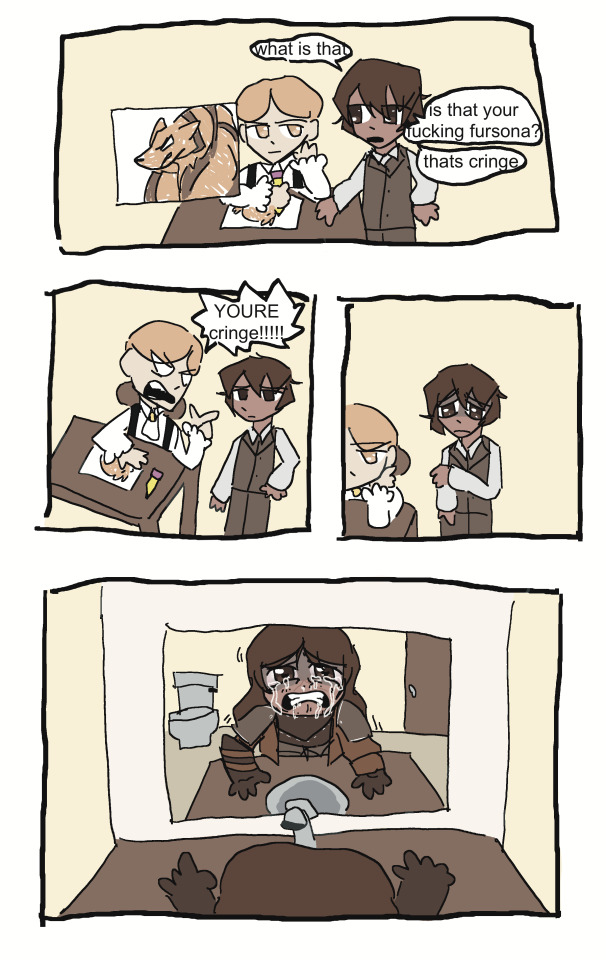
Canto VI is great so far.
#this took way too long to draw#project moon#limbus fanart#limbus company#lcb#heathcliff#heathcliff lcb#hindley lcb#hindley#hindley earnshaw#limbus company fanart
417 notes
·
View notes
Text
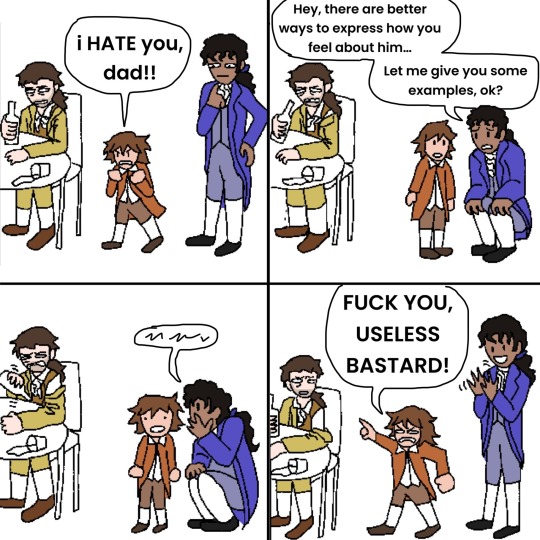
(38) Wuthering Heights comic 18- swearing
I love how part of heathcliff’s complicated revenge plan is teaching hareton to constantly swear at his dad.
#wuthering heights#wuthering heights heathcliff#heathcliff#hareton earnshaw#hindley earnshaw#hareton#hindley#comic#comics#webcomic#classic lit#classic literature#gothic literature#classic lit memes#literature comic#english literature#english lit memes#gothic lit memes#gothic lit art#classic lit art#bookblr#bookworm#books and reading
477 notes
·
View notes
Text

is this anything
182 notes
·
View notes
Text
wuthering heights in memes (p2)
wuthering heights and thrushcross grange:

heathcliff writing love letters to cathy 2.0 under his sons name:

linton heathcliff:

hindley when heathcliff knocks at the door:

aaaand heathcliff, right before reducing hindley to a bloody puddle:
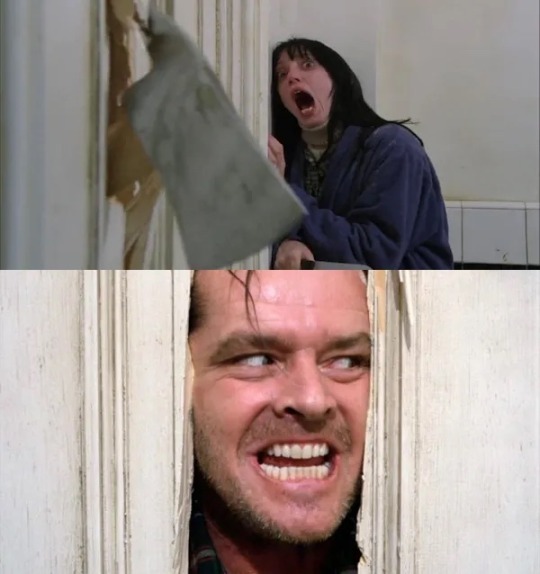
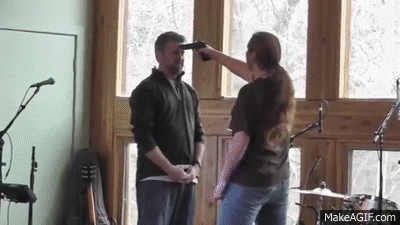
everyone when heathcliff shows up after 3 years:
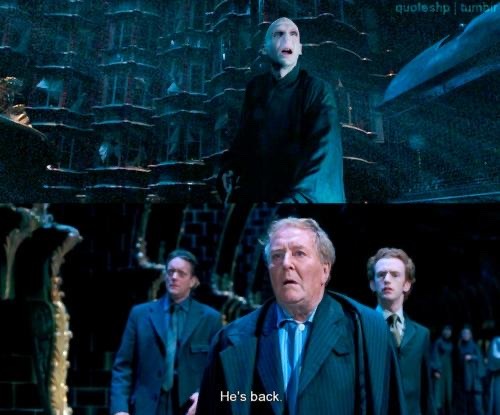
anything: happens
joseph:

[heathcliff talking to infant hareton after hindley's death] ". . . previous to following with Hareton, he lifted the unfortunate child on to the table and muttered, with peculiar gusto, 'Now, my bonny lad, you are mine! And we'll see if one tree won't grow as crooked as another, with the same wind to twist it!' The unsuspecting thing was pleased at this speech: he played with Heathcliff's whiskers, and stroked his cheek . . ."

heathcliff, 3 seconds after marrying isabella:

#wuthering heights#memes#heathcliff#heathcliff wuthering heights#emily brontë#the brontës#meme#funny#lit memes#literature memes#books#reading#novels#lit#literature#english literature#victorian#hindley earnshaw#linton heathcliff#catherine linton
123 notes
·
View notes
Text
Ok. So, i read some more Wuthering Heights today and this one paragraph really struck me- like it got to me just as much as lines like ‘whatever our souls are made of his and mine are the same’. But I don’t think this part is probably talked about as much, because its about 2 of the supporting characters and its not a poetic romance quote.
I’m talking about this paragraph, where Nelly Dean is walking outside and is reminded of her childhood:
“all at once a gush of child's sensations flowed into my heart. Hindley and I held it a favourite spot twenty years before. I gazed long at the weather-worn block; and, stooping down, perceived a hole near the bottom still full of snail-shells and pebbles, which we were fond of storing there with more perishable things; and, as fresh as reality, it appeared that I beheld my early playmate seated on the withered turf: his dark, square head bent forward, and his little hand scooping out the earth with a piece of slate. 'Poor Hindley!' I exclaimed, involuntarily.”
The reason this got to me so much is that this is exactly the way I’d been thinking about Heathcliff. ‘Sure, heathcliff’s a jerk!’ I’d think to myself, ‘but in the earlier chapters when he was a kid he was so cute and loved cathy so much! He was so unfairly treated!! He had moments where he laughed and played!!’ Not that i excused Heathcliff’s wrongful actions, but i sympathized with him, just a bit. Deep down i want him and cathy to have a happy ending, even though they’ve hurt and will hurt so many people.
(somehow, having many of heathcliff’s future actions spoiled for me by reading through the WH tag so often has not made the book any less enjoyable to me. This book is that good.)
Hindley, however….Up until this point I had always seen him as nothing more than a monster. We see very little of his childhood. We see him cry about his toy being broken, and then later we see him being racist towards-and then physically abusing- Heathcliff. After that, he’s a young adult/adult and is just consistently even worse to Heathcliff (and everyone else at Wuthering Heights) than he was before.
Nelly, unlike the readers, saw hindley’s whole childhood. She saw the moments when he was good, when he smiled and laughed. She saw ways that he was treated unfairly (his own father liking this new adopted son better than him and not hiding that bias at all).
Does this make hindley suddenly a good person? Of course not! But it really put into perspective for me how similar heathcliff and hindley are, and how i was biased way more towards one because I had seen his good side. Heathcliff and hindley are both incredibly violent, grumpy, abusive people who crave money and power. I’m sure I’ll continue to find similarities as I read more.
My three main takeaways from this paragraph are:
1) i think that hindley not only serves as a catalyst for heathcliff becoming a bad person, but also as heathcliff’s narrative foil. (Wikipedia says: ‘A foil usually either differs dramatically or is an extreme comparison that is made to contrast a difference between two things.’ I think this is a perfect description of how heathcliff and hindley work in the narrative- hindley is perhaps how we would view heathcliff if we hadn’t seen his childhood.)
2) i think this paragraph serves to remind the reader that everyone is a human who has at one point been innocent, and that this fact doesn’t excuse bad behavior, and that you should be careful about sympathizing with heathcliff so much that you begin to excuse his actions. I also think the fact that this paragraph comes so soon before isabella’s letter to nelly is incredibly important and intentional. That letter she writes about arriving at wuthering heights really highlights how bad of a person heathcliff is.
3) i am now slightly sympathetic towards hindley, and view him as a bit more of a complicated character than i took him for previously. I am also now a bit more conscious and critical of my sympathetic reading of Heathcliff up until this point.
All this being said- heathcliff is still (for lack of a better term) one of my blorbos. I am obsessed with his stupid edgy personality and his sarcastic comments and his over the top evil plans. I am ESPECIALLY obsessed with his relationship with cathy. I know it wouldn’t actually be romantic in real life but, man. I could write a whole ‘nother post about how much i love their relationship. I want to put him in a microwave and watch him spin around. the former-AP-english-student in me is aware that he is a terrible person but the silly drama-loving side of me cant help but just find all of his terrible actions sort of equal parts funny and badass (i feel like this will stay true even as he does some of the more horrifying things i’ve heard about later). silly side of me wants him and cathy to do whatever evil things they want and ride off into the sunset laughing maniacally together.
(JEEZ i did not think i would spend an hour writing like a full essay when i started this post. this is what adhd does to you, folks.)
#wuthering heights#wutheringposting#heathcliff#wuthering heights heathcliff#heathcliff wuthering heights#hindley earnshaw#nelly dean#emily bronte#my WH posts
69 notes
·
View notes
Text

HINDLEY???? LMAOOOOOOOOOOO????
ed sheeran let the dog out…
#canto vi spoilers#canto vi#limbus company#limbus#lcb#hindley earnshaw#project moon#IM IN TEARS BAHAHHAHAHAHAHAH
45 notes
·
View notes
Text



Hindley had an entire villain arc because he didn’t get his violin
24 notes
·
View notes
Text
Funny as fuck of Catherine to send her brother to Rehab in her will,
41 notes
·
View notes
Text
#wuthering heights#wh polls#polls#heathcliff#catherine earnshaw#edgar linton#isabella linton#hindley earnshaw#nelly dean#cathy linton#hareton earnshaw#linton heathcliff#mr. lockwood
59 notes
·
View notes
Text
Reading "Wuthering Heights" for reasons (*cough* Limbus Company *cough*) and thinking about Nelly's perspective on Heathcliff growing up.
*Slight Wuthering Heights spoilers*
Nelly, seeing Heathcliff regularly getting beaten by Hindley for circumstances outside of his control: "Heathcliff seems to be managing well enough, I'm sure he's fine. He barely even cries."
Narrator: "And we would all soon find that that was absolutely not the case."
#wuthering heights#limbus company#lcb heathcliff#heathcliff#hindley earnshaw#what do you mean heathcliff's childhood wouldn't make him a well-adjusted child? he looks fine to me#and then nothing went horribly wrong
23 notes
·
View notes
Text
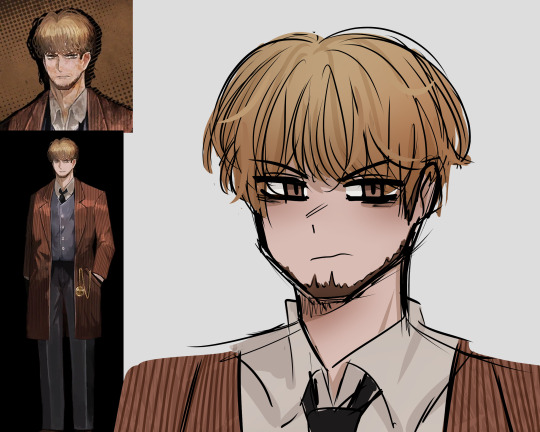
wanted to see if my artstyle can handle drawing hindley
it can
#digital art#digital drawing#art#drawing#project moon#limbus company#hindley#hindley earnshaw#canto 6#canto VI#canto 6 spoilers#canto VI spoilers#hindley lcb
18 notes
·
View notes
Text
Wuthering Heights as Onion Headlines:
Heathcliff:

The entire household:
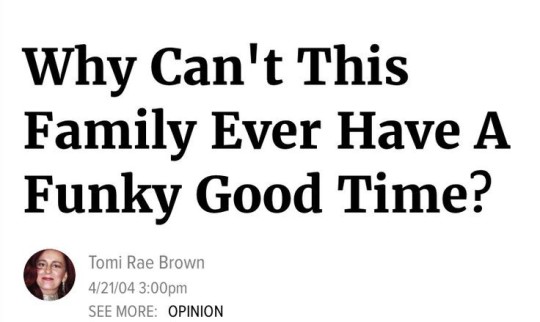
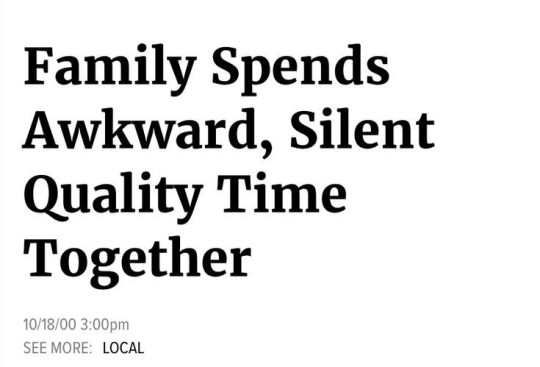
Linton whenever Heathcliff comes visit:
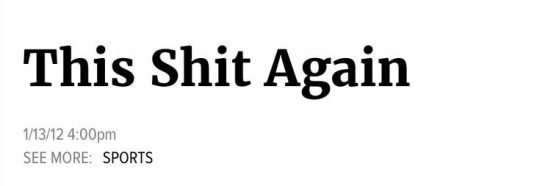
Everyone whenever Heathcliff does anything:

Hindley Earnshaw:
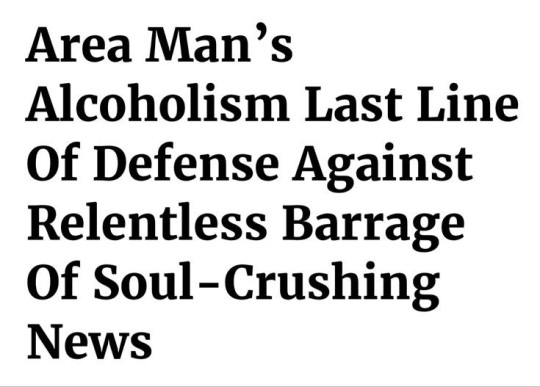

Heathcliff after he overhears Cathy's and Nelly's conversation:
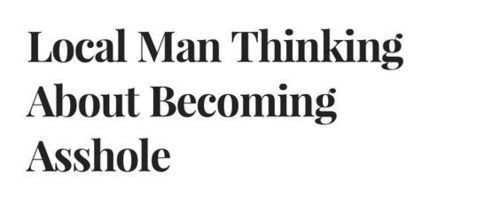
Literally everyone tbh:

Heathcliff seeing Cathy (Jr.) and Linton (Jr.) getting along:

#wuthering heights#heathcliff#catherine earnshaw#catherine linton#edgar linton#linton heathcliff#nelly dean#hareton earnshaw#hindley earnshaw#i love this book so much#how can people say that this is boring
100 notes
·
View notes
Text

(19) Wuthering Heights comic 13- baby hareton
#wuthering heights#comic#comics#webcomic#classic lit#nelly dean#hareton earnshaw#catherine earnshaw#heathcliff#hindley earnshaw
201 notes
·
View notes
Text
I always find it hilarious how often casting directors of Wuthering Heights film adaptations portray Ellen “Nelly” Dean as this elderly housekeeper next to Catherine Earnshaw, Hindley Earnshaw, Heathcliff, Edgar Linton, and Isabella Linton because that’s not who she is in the book at all.
In actuality, she’s about the same age as Hindley Earnshaw, who was only around 27-28 years old when he died, due to alcoholism. She’s only roughly six years older than Heathcliff and eight years older than Catherine Earnshaw/Linton Sr. She was only 14 years old when Mr. Earnshaw brought Heathcliff to Wuthering Heights, and they met. She was only in between her early-mid 20s when Cathy Sr accepted Edgar Linton’s proposal, and Heathcliff ran away after overhearing about how “it would degrade [Catherine] to marry him.” She was only in her late-twenties when Cathy Sr and Hindley Earnshaw died.
By the time we get into the second generation coming of age, Nelly’s story to Mr. Lockwood about these fucked up people she’s known and worked for from these two families since she was a child, Edgar Linton’s death, Isabella Linton’s death, Heathcliff’s death, and Cathy Linton Jr’s and Hareton Earnshaw’s engagement/upcoming marriage, Nelly is between her early-mid 40s.
At the end of the novel, Nelly has still just barely approached the beginning of “middle age” by the time Heathcliff and all this family drama surrounding the Earnshaws and Lintons. It’s why it just cracks me up how she’s always portrayed as this much more cynical and mature elderly lady in nearly every film. I guess, her being everyone else’s caretaker/servant everyone else’s favorite confidant, and her practical makes her attitude and personality comes across as someone you’d expect to be much older than her actual years
Granted, they also have often cast actors and actresses who are between their late-twenties to mid-thirties to portray Heathcliff and Cathy Sr as teenagers to early twenties. Of course, it’s also not uncommon for many people between their late-twenties to thirties, and sometimes even early 40s, to still get physically mistaken for being between their late-teens to mid-twenties since those are still fairly young years in adulthood, too. Juliet Binoche looked to be her actual age of 28 years old when she played the much younger 14-18 year old Cathy Sr and Cathy Jr Earnshaw/Linton, though.
Ralph Fiennes is actually my favorite actor’s portrayal of Heathcliff. I think he captured the anger, the charisma, the instability, the moodiness, the mystery, the obsessiveness, and the vague underlying sense of sympathy in Heathcliff the best. Physically, Ralph Fiennes is a white Caucasian actor, but to the the costume/make up department’s credit, they did have him wear a black wig and tan his skin enough to make him come across as mixed Romani in descent for this movie. Yeah, Nelly says his skin is “blacker than the devil,” but we also know that England was a very racist country towards outsiders who were not of pure white Anglo Saxon British descent back then, so Heathcliff could have been a lighter shade of tan than she said or he could have been dark brown. We don’t get a clear answer.
I also do love this scene of him talking to Nelly about being tired of getting revenge at the end of the 1992 Wuthering Heights film adaptation. They both appear to be around the right ages from the book here, and I love Nelly’s exasperated “Oh, for God’s sake…Can you please, stop staring like that!” She is so over and done with Heathcliff’s crazy bullshit, and the actress portraying Nelly here portrays that so well!
youtube
#wuthering heights#film adaptations#emily bronte#they always portray Nelly as an elderly woman in film adaptations of Wuthering heights#whereas in the novel she’s only just approached middle age by the time she meets Lockwood and heathcliff dies#heathcliff#nelly dean#janet mcteer#ralph fiennes#1992 Wuthering heights#Juliet binoche#hindley earnshaw#Youtube#in the novel Nelly’s the same age as Hindley Earnshaw and roughly three years older than Heathcliff
39 notes
·
View notes
Text
A very long analysis on Heathcliff, his relationships, and his origins: or, how Wuthering Heights drove me insane :)
Links to my previous WH analysis (which aren't required to read this post!): 1) my post analyzing heathcliff & his relationships with cathy2.0/isabella/hareton / 2) smaller post analyzing heathcliff & the earnshaws in relation to theories about his parentage / 3) misc. heathcliff/cathy analysis
-
On Heathcliff's origins, his mysteriousness, and his arrival to Wuthering Heights:
As I mention in that 2nd link, I think the theory of Heathcliff being Mr. Earnshaw's son is an interesting theory of conjecture because even if not true (and it probably isn't) it allows us to more deeply explore the generally accepted basis of the canon, which is that Heathcliff is not related to them, but nevertheless is still caught between the labels of "family" and "outsider," just like he would have been if he had indeed been a bastard, a step-child, or even more formally adopted. Under Mr. Earnshaw's wishes Heathcliff shares a room with the children, he is given equal gifts and clothes as them, and he is preferred over Hindley. And while he may not be in line to inherit legally, he ends up inheriting anyway, an idea which lends itself to the novels Joseph-approved theme of predeterminism/fate.
So I'm not dead-set on any singular interpretation or theory as to Heathcliff's role in the story or the details of his background. Much of his character is inherently mysterious: his race and age are unknown, his family history and origins are unknown, what he was doing for 3 years of Cathy's marriage and how he acquired his wealth are unknown, some of his feelings and motives are highly debatable (as I discussed in my post about his odd dynamics with Cathy 2.0, Isabella, & Hareton: https://www.tumblr.com/burningvelvet/738901817580290048/my-analysis-on-heathcliff-and-his-relationships), & whether English was his first language is also questioned (many people including myself have wondered at the line where we're told he "repeated over and over again some gibberish that nobody could understand," though it could have just been panicked child's speech).
Many academics have noted how Wuthering Heights follows various testaments of the Gothic literary tradition, not only by the involvement of death, violence, ghosts, etc., but also in the use of incestuous themes (whether literal or metaphorical) and the use of the Other in Heathcliff, aided by the mysteries of his origins and his racial ambiguity.
As for Heathcliff not revealing much about his childhood, I believe this part of it could be due to trauma as well as regular childhood amnesia. He may not remember anything. A lot of people don't have many memories from before the age of ~6 anyway — and I just looked it up— his real age is never given but he is believed to be around the same age than Cathy who was described as "hardly six years old." I had thought they were a little older for some reason. He's also said to have been "speaking gibberish" which I once considered may have been indicative of a foreign language and/or accent but now, because of his age and probable low background, it may have been due to his just being very young and maybe unsocialized and shy. It actually makes my heart ache when Nelly describes him :(
Here's an excerpt from chapter 3 describing Heathcliff's childhood:
"He threw himself into a chair, laughing and groaning, and bid them all stand off, for he was nearly killed—he would not have such another walk for the three kingdoms.
'And at the end of it to be flighted to death!' he said, opening his great-coat, which he held bundled up in his arms. 'See here, wife! I was never so beaten with anything in my life: but you must 'en take it as a gift of God; though it's as dark almost as if it came from the devil.'"
We crowded round, and over Miss Cathy's head I had d peep at a dirty, ragged, black-haired child; big enough both to walk and talk: indeed, its face looked older than Catherine's; yet when it was set on its feet, it only stared round, and repeated over and over again some gibberish that nobody could understand. I was frightened, and Mrs. Earnshaw was ready to fling it out of doors: she did fly up, asking how he could fashion to bring that gipsy brat into the house, when they had their own bairns to feed and fend for? What he meant to do with it, and whether he were mad? The master tried to explain the matter; but he was really half dead with fatigue, and all that I could make out, amongst her scolding, was a tale of his seeing it starving, and houseless, and as good as dumb, in the streets of Liverpool, where he picked it up and inquired for its owner. Not a soul knew to whom it belonged, he said; and his money and time being both limited, he thought it better to take it home with him at once, than run into vain expenses there: because he was determined he would not leave it as he found it. Well, the conclusion was, that my mistress grumbled herself calm; and Mr. Earnshaw told me to wash it, and give it clean things, and let it sleep with the children.
Hindley and Cathy contented themselves with looking and listening till peace was restored: then, both began searching their father's pockets for the presents he had promised them. The former was a boy of fourteen, but when he drew out what had been a fiddle, erushed to morsels in the great-coat, he blubbered aloud; and Cathy, when she learned the master had lost her whip in attending on the stranger, showed her humour by grinning and spitting at the stupid little thing; earning for her pains a sound blow from her father, to teach her cleaner manners. They entirely refused to have it in bed with them, or even in their room; and I had no more sense, so I put it on the landing of the stairs, hoping it might be gone on the morrow. By chance, or else attracted by hearing his voice, it crept to Mr. Earnshaw's door, and there he found it on quitting his chamber. Inquiries were made as to how it got there; I was obliged to confess, and in recompense for my cowardice and inhumanity was sent out of the house.
This was Heathcliff's first introduction to the family. On coming back a few days afterwards (for I did not consider my banishment perpetual), I found they had christened him 'Heathcliff': it was the name of a son who died in child-hood, and it has served him ever since, both for Christian and surname. Miss Cathy and he were now very thick; but Hindley hated him: and to say the truth I did the same; and we plagued and went on with him shamefully: for I wasn't reasonable enough to feel my injustice, and the mistress never put in a word on his behalf when she saw him wronged.
He seemed a sullen, patient child; hardened, perhaps, to ill-treatment: he would stand Hindley's blows without winking or shedding a tear, and my pinches moved him only to draw in a breath and open his eyes, as if he had hurt himself by accident, and nobody was to blame. This endurance made old Earnshaw furious, when he discovered his son persecuting the poor fatherless child, as he called him. He took to Heathcliff strangely, believing all he said (for that matter, he said precious little, and generally the truth), and petting him up far above Cathy, who was too mischievous and wayward for a favourite.
So, from the very beginning, he bred bad feeling in the house; and at Mrs. Earnshaw's death, which happened in less than two years after, the young master had learned to regard his father as an oppressor rather than a friend, and Heathcliff as a usurper of his paren's affections and his privileges; and he grew bitter with brooding over these injuries. I sympathised a while; but when the children fell ill of the measles, and I had to tend them, and take on me the cares of a woman at once, I changed my idea. Heathcliff was dangerously sick; and while he lay at the worst he would have me constantly by his pillow: I suppose he felt I did a good deal for him, and he hadn't wit to guess that I was compelled to do it. However, I will say this, he was the quietest child that ever nurse watched over. The difference between him and the others forced me to be less partial. Cathy and her brother harassed me terribly: he was as uncomplaining as a lamb; though hardness, not gentleness, made him give little trouble."
From this excerpt we see that Earnshaw 1) despite being racist toward Heathcliff, is also wildly protective of him - so much so that he kicks Nelly out of the house FOR DAYS for initially not allowing Heathcliff to sleep in his childrens room 2) Earnshaw doesn't like Cathy that much, and prefers Heathcliff over her; later when he dies he has a nice moment with her, but still asks her why she can't be a better child (lol) 3) Earnshaw did not name Heathcliff on his own accord but Heathcliff is named after Earnshaw's own son that died!!! And that says a lot; we're also never really told how Mrs. Earnshaw felt about him being named after her dead kid, or if she had a part in it or not, or if she grew to like Heathcliff too — she just dies soon after - however, I think we can all assume she always favored Hindley over Heathcliff, since we're told Hindley's jealousy grew after her death 4) Heathcliff is described by Earnshaw as a "gift from God" which I find kind of suspicious because Earnshaw struggled so much just to get him home... um, God had no part in that, Mr. - unless he's referring to the kids existence imo. At any rate, if Heathcliff isn't biologically related to Earnshaw, we're still led to have the sense that Heathcliff is sort of predestined to be there 5) Heathcliff was indeed a bit scraggly/unkempt when he arrived, but imo that doesn't mean he was necessarily a homeless orphan; if he did have a mother/family, they probably would have been living in harsh conditions anyway just by being impoverished, and if not, maybe he was just a bit dirty from wandering outside like normal kids do, and like he's so fond of doing anyway on the Moors later on - he could have just been playing outside when this white guy comes along and takes him under his coat! 6) Earnshaw says he asked around for the kids parents and felt obligated to take him on, though the kid was struggling... so yeah, regardless of if he's omitting other info or if he's his father or not, we can infer that he essentially kidnapped Heathcliff.
After re-reading this excerpt, I don't think it's as likely that Earnshaw had seen/known Heathcliff personally prior to his taking him home, but I still don't think any of this totally disproves the theory that Earnshaw could have been lying to Mrs. Earnshaw/omitting certain information.
Why was Mr. Earnshaw in Liverpool to begin with? I and many others often assume it was some sort of a business trip, and it probably was, but after re-reading the part where he leaves, I can't actually find anything to definitively confirm what he was actually there for. He could have been in Liverpool specifically to take Heathcliff with him. Another thing that doesn't make any sense is the fact that he walked all the way there alone: "I’m going to Liverpool today, what shall I bring you? You may choose what you like: only let it be little, for I shall walk there and back: sixty miles each way, that is a long spell!’"
He's then gone for 3 whole days. Meaning according to him, he walked 120 miles in 3 days, half of that while carrying/dragging a struggling small child, who he says he took because it would be his easiest option: "his money and time being both limited, he thought it better to take it home with him at once, than run into vain expenses there."
He's contradicting himself, because if he was so concerned about finances then he never would have taken on another child, as Mrs. Earnshaw immediately supplies (meaning if he was on a mission to retrieve Heathcliff, he didn't tell her): "Mrs. Earnshaw was ready to fling it out of doors: she did fly up, asking how he could fashion to bring that gipsy brat into the house, when they had their own bairns to feed and fend for? What he meant to do with it, and whether he were mad?" Ummmm you're telling me there isn't something a little suspicious or weird about any of this?!
And why would he be walking in the first place when he has horses — was he really so tight on money as to not want to support/feed them on a journey, or did he just not want to be recognized or attract attention, or did he not want to deal with a child riding on a horse for the first time? I assume carriages/wagons were out of the question for costs, and I know people walked a lot back then, especially in rural farmlands, but that is a very long journey as he himself says. What was so important? Did he even go to Liverpool at all? And why did he bundle Heathcliff up as if to hide him? To avoid suspicions about having a bastard child, etc.? And we're told Mrs. Earnshaw was expecting him home earlier, and we get no indication if she knew Mr. Earnshaw's plans or whereabouts.
And why does Mr. Earnshaw act so upbeat and nonchalant about all of this, when we're told he's usually really stern? Ie he supposedly treats Nelly well eg, telling her he'll bring her back fruits on his journey, but then he LOCKS HER OUT OF THE HOUSE FOR MULTIPLE DAYS for not following his orders about putting Heathcliff in the children's room on his first night there.
Where tf did she even go lol? Am I forgetting some part about her family having a nearby house? How far did she have to walk to get there, alone and unaccompanied as a young woman? Probably less than 120 miles in 3 days, but still! He's known Nelly her whole life, and he's supposedly known Heathcliff for a day (in which time Heathcliff has already led him into physical exhaustion), and yet he already prefers Heathcliff over her as well as his own children.
Even excusing Nelly being a narrator of debatable reliability, and being sometimes contradictory & biased against Heathcliff, Mr. Earnshaw's behavior still seems a bit outlandish and it makes sense that Mrs. Earnshaw would ask him if he had gone mad. I course, I may be looking too far into this, but how can I not?
Heathcliff's trauma, his relationship with Mr. Earnshaw, Earnshaw as kidnapper, and race:
I think Heathcliff is certainly severely traumatized. I'm not a psychologist but Nelly's line "hardness, not gentleness, made him give little trouble" is textbook childhood CPTSD, and it is partly due to Earnshaw indeed being a kidnapper with a white saviour/"white man's burden" complex.
I think the following quote by Nelly supports this kidnap view, in that she actually refers to him being kidnapped; Emily may also be encouraging us to speculate on even the most outlandish theories of his origins like Nelly does:
"‘A good heart will help you to a bonny face, my lad,’ I continued, ‘if you were a regular black; and a bad one will turn the bonniest into something worse than ugly. And now that we've done washing, and combing, and sulking—tell me whether you don’t think yourself rather handsome? I'll tell you, I do. You're fit for a prince in disguise. Who knows but your father was Emperor of China, and your mother an Indian queen, each of them able to buy up, with one week’s income, Wuthering Heights and Thrushcross Grange together? And you were kidnapped by wicked sailors and brought to England. Were I in your place, I would frame high notions of my birth; and the thoughts of what I was should give me courage and dignity to support the oppressions of a little farmer!'"
Like in Charlotte's Jane Eyre, Emily also borrows taboo Romantic and Orientalist imagery and racializes the gothic Other figure, because this idea of the foreign/non-white body was a source of anxiety to a lot of white British Victorian readers. This is a popular concept in Gothic literary studies & a lot has been written on it, so I won't go into it too much.
Like Charlotte's Bertha Mason, Linton Heathcliff's identity as being mixed race is essential to his character — in the narrative, him being white-passing is supposed to relate to his identity being more Isabella/Linton (as also evidenced by his name) and less Heathcliff's, who is disappointed not to see his own resemblance in his son.
Since we seriously don't know Heathcliff's true origins, we can't ascertain his ethnicity (given his descriptions/epithets/Nelly's speculations, he is likely fully or part Roma, South-Asian, or African), and we can't tell if he or his family/mother were highborn, enslaved, or simply free, but we do know that slavery was still very active in England in the late 1700s when Heathcliff is a child, and his hometown Liverpool was the center of the slave trade, so connections to slavery either ancestrally or during his hiatus (a popular theory, explored in the book Heathcliff: the Lost Years by David Drum) are possible.
More evidence for the theory of Heathcliff having a previous history of child abuse and unknown early trauma, possibly relating to the slave trade (which doesn't necessarily discount the Earnshaw parentage theory either imo, and if anything may make it more likely if his reasoning for taking Heathcliff was that he wouldn't want his biological son enslaved) — is the portion where Nelly describes Heathcliff and how he initially took Hindley's abuse stoically:
". . . a sullen, patient child; hardened, perhaps, to ill-treatment: he would stand Hindley's blows without winking or shedding a tear, and my pinches moved him only to draw in a breath and open his eyes, as if he had hurt himself by accident, and nobody was to blame. This endurance made old Earnshaw furious, when he discovered his son persecuting the poor fatherless child, as he called him. He took to Heathcliff strangely . . ."
When Nelly adds that Earnshaw called Heathcliff "poor fatherless child," I see this as ironic whether Earnshaw is his biological father or not, since he is still the closest thing he has to any sort of "father figure" nominally, and symbolically in line with the view of Earnshaw as flawed micro-colonizer. In the act of standing up for Heathcliff over his own teenage son and future master of the house, he is basically acting as a pseudo-father preferring one son over another; for Hindley, the blow is deepened by Heathcliff not being Earnshaw's son in name.
For clarity's sake, whenever I refer to Mr. Earnshaw as Heathcliff's unofficially adoptive father or father figre, I do so sort of hesitatingly. Mr. Earnshaw/Heathcliff do not have a regular father/son dynamic; we're told that Heathcliff did not embrace but rather fought Mr. Earnshaw the entire 60 miles back to the Heights.
Surely the above may be hyperbole, but we must keep in mind that Mr. Earnshaw's gifts for Cathy/Hindley/Nelly were lost or destroyed in the process: most symbolically, Mr. Earnshaw's struggle to obtain Heathcliff led to Hindley's fiddle being broken, Cathy's whip being lost, and we're never told what happened to Nelly's gift of fruit, but we can assume it was lost or never got to be obtained as a result of his preoccupation.
Heathcliff's relationship with Mr. Earnshaw is complicated because of the racial power imbalance & as I said, Earnshaw having a white saviour complex & basically kidnapping Heathcliff despite (or so we're told) not fully knowing if Heathcliff had a family or not. Most important are Heathcliff's own feelings about the situation; Earnshaw's wild affection is clear.
We're told by Nelly's observations that Heathcliff clearly did not have a great love for Earnshaw: "I wondered often what my master saw to admire so much in the sullen boy; who never, to my recollection, repaid his indulgence by any sign of gratitude. He was not insolent to his benefactor, he was simply insensible; though knowing perfectly the hold he had on his heart, and conscious he had only to speak and all the house would be obliged to bend to his wishes."
When Mr. Earnshaw was dying, Heathcliff was sitting with Cathy who was singing to Earnshaw. When they realize Earnshaw has finally passed, Heathcliff seems to genuinely grieve as equally as Cathy (Hindley is at college at this time):
"The poor thing discovered her loss directly — she screamed out — 'Oh, he's dead, Heathcliff! he's dead!' And they both set up a heart-breaking cry." Later when Nelly returns from getting help: "I ran to the children's room: their door was ajar, I saw they had never lain down, though it was past midnight; but they were calmer, and did not need me to console them. The little souls were comforting each other with better thoughts than I could have hit on: no parson in the world ever pictured heaven so beautifully as they did, in their innocent talk . . ."
Yet we also know by Heathcliff's odd dynamics with Nelly and Hareton, and even by some of his behavior around Catherine I (who is the only person that most of us can agree he really loves), we can see that, probably due to trauma, Heathcliff does not know how to show affection "normally."
By his earlier disconnected reactions to Hindley's abuse, we can see that early on he had trouble reacting to negative emotions as well, which probably led him to his later emotional dysregulation & bursts of rage/frustration, which make complete sense in his situation and are why we can still often sympathize with him in his path of vengeance, even despite his abusiveness.
So we do not know the full extent of Heathcliff's feelings toward Mr. Earnshaw, and whether he truly had deep affection for him or somewhat resented him, but whatever his feelings were, they were clearly complex. As we all know, Heathcliff is capable of feeling very strongly, and when he does, he is usually vocal about it (see: literally most of his dialogue). He can't go 30 seconds without roasting someone lol. But he is oddly ambivalent and quiet about Earnshaw.
You could also (& countless academics have) argue that Earnshaw/the Earnshaw family is essentially a microcosm of colonization, Heathcliff is symbolically captured/enslaved by Mr. Earnshaw (which highlights how white saviourism is oxymoronic), and then actually becomes almost literally enslaved by Hindley later on.
On Heathcliff and Hindley:
Both are extremely flawed. Both are wildly in love with women who die from labor, both become abusive single fathers, both are defined by their grief and feelings of revenge, both want to kill each other all throughout the story, both actually try to do so to varying extents. Heathcliff saves Hareton from Hindley's negligence by catching him, Hindley saves Isabella from Heathcliff's abuse by tackling the latter (in what I think is one of the novels best sequences, Isabella's narration of the period of Heathcliff and Hindley's fighting and her escape). Heathcliff's bond with Hareton, like Hindley's bond with Isabella, is both manipulative and touching in turns. Ditto for their bonds to Nelly.
Many people believe Heathcliff had a role to play, directly or indirectly, in Hindley's death. Evidence for this: 1) teen Heathcliff wishes Hindley could drink himself to death but acknowledges doctor Kenneth says he won't: "‘It’s a pity he cannot kill himself with drink,’ observed Heathcliff, muttering an echo of curses back when the door was shut. ‘He’s doing his very utmost; but his constitution defies him. Mr. Kenneth says he would wager his mare that he’ll outlive any man on this side Gimmerton, and go to the grave a hoary sinner; unless some happy chance out of the common course befall him.’" 2) later, Kenneth remarks to Nelly that "He's barely twenty-seven, it seems; that's your own age: who would have thought you were born in one year?'" 3) Joseph once accused Heathcliff of attempting to murder Hindley during their fight ("And so ye've been murthering on him?") - in which Isabella said Heathcliff had to barely restrain himself from not killing Hindley. Joseph later adds suspicion to Hindley's death when, after Heathcliff explains to Nelly how Hindley had been suffering from the effects of alcoholism but died suddenly in the morning, Joseph "confirmed this statement, but muttered: "I'd rayther he'd goan hisseln for t' doctor! I sud ha' taen tent o' t' maister better nor him—and he warn't deead when I left, naught o' t' soart!'" (trans. from WH Reader's Guide site: "'I'd rather he'd gone himself for the doctor! I would have taken care of the master better than him—and he wasn't dead when I left, nothing of the sort!'"). So Heathcliff told Joseph to fetch Kenneth which left Heathcliff alone with Hindley, who was then dead when Joseph/Kenneth arrived.
My own theory is that Hindley probably choked on his own vomit (a common form of death by addiction) because of Heathcliff's description of he and Joseph finding Hindley "snorting like a horse; and there he was, laid over the settle: flaying and scalping would not have wakened him." It is after this that Heathcliff is alone with Hindley and he dies. Heathcliff can be seen as guilty through inaction imo, though he would justify it by saying he was letting nature take its course.
Heathcliff and Hindley take turns enslaving each other throughout the story. Hindley's seniority, legitimacy, and race give him advantages, while Heathcliff's early favoritism by Mr. Earnshaw and his later accrual of wealth, wit, and strength give him some advantages. We're told by Nelly (and she's biased, but she's the main source we have) that Hindley bullied Heathcliff immediately, to which Heathcliff weaponized Mr. Earnshaw in his favor, as evidenced by the horse scene.
If, when Hindley returned to become master of Wuthering Heights after Mr. Earnshaw's death, his wife Frances had taken a liking to Heathcliff, or if Hindley had simply matured in his time away — in other words, if Hindley had decided to grow up and let bygones be bygones — I wonder if Heathcliff would have done the same, and decided to be peaceful & not to continue their childhood rivalry.
The bulk of Heathcliff's lust for revenge really stems from Hindley's treatment of him after Mr. Earnshaw's death, when Hindley, as the new Mr. Earnshaw, really does follow through on that childhood promise during the horse scene to use his wealth/power/independence to render Heathcliff miserable, and to turn him out or keep him enslaved. Possibly at the beckoning of Frances (which I mention later,) Hindley succeeds in fulfilling this childish power fantasy, and this is partly what inspires Heathcliff to obtain the means of flipping the script and later rendering Hindley a weakened dependent.
Although Hindley is racist/absorbed his parents racism, note that Catherine was not/did not, and so Hindley's true hatred of Heathcliff imo is more motivated by jealousy/envy for his father's affection than it is anything else, & his own feelings of inadequacy & self-hatred which likely would have existed anyway & were just fuelled by being "usurped" in his father's affection.
I really blame Mr. (& Mrs., though we sadly have so little insight into her character) Earnshaw for Hindley/Heathcliff's rivalry, because I feel like we can assume Mrs. Earnshaw must have favored Hindley more when Mr. Earnshaw started favoring Heathcliff, considering Hindley's hatred increased after the grief from his mother's death, — and this favoritism & parental split is bound to deepen the split between their favorites.
Hindley's hatred of Heathcliff really increased after his father & then his wife's deaths (meaning he had prolonged complex grief), which I'm assuming compounded & brought back his feelings of his original grief for his mother, resulting in further hatred of Heathcliff who had nothing to do with any of it but whose arrival Hindley just subconsciously associated with his mother's illness/death & his father's emotional abandonment (which we could consider a mental death which took place before his physical death; imo Hindley's whole character is defined by grief).
To enhance their pseudo-brotherly rivalry, which some may say is reminiscent of Abel/Cain (especially if you believe the theory/opinion that Heathcliff murdered Hindley or was otherwise in any part to blame for his death), we again have the fact that Heathcliff was named after Hindley's dead brother.
Heathcliff is actually Heathcliff 2.0, and maybe it was Mr. Earnshaw's grief that led him to use Heathcliff 2.0 as a replacement child the way Hindley uses Mrs. Earnshaw 2.0 as a replacement mother.
All throughout the story we have people being named after each other and taking on each other's roles, ie the whole 1st/2nd generation parallels (we could extend it to be 1st/2nd/3rd since I've highlighted the narrative importance of Mr./Mrs. Earnshaw), Linton Heathcliff, Cathy 1.0/2.0. — but we know nothing about Heathcliff 1.0 other than that he died in childhood.
Was he Catherine's age, younger, or older? Did Catherine see Heathcliff as a replacement brother? Did Heathcliff 1.0 die before Catherine was born? Was he Hindley's age? Did Hindley already have grief/trauma from Heathcliff 1.0's death and resent Heathcliff 2.0 for usurping not only him, but his dead brother's place?
We're told that "the family" gave Heathcliff 2.0 his name, but I assume Mrs. Earnshaw and Hindley may not have been involved due to us never seeing that they care for him — and Joseph may have had a role in it, but he's also rarely thoughtful, and Nelly was gone — so could Cathy have suggested the name Heathcliff? (which brings to my mind Edward Rochester telling Jane Eyre to "give him his name" when he proposes to her, asking her to call him "Edward" — this would be poetic of Catherine/Heathcliff's relationship).
The meaning of the names Heathcliff/Hindley are very similar; they also share the same initials, syllable count, and the "ee" sound. Heathcliff is a combination of "heath" (a synonym for "moor"; what he and Cathy love to roave on) and "cliff." In meaning, apparently (according to some sources on Ancestry.com) Hindley is a habitational name from hind 'hind, female deer' and lēah 'woodland clearing' — which is basically another way of saying heath/moor. So there is a lot of similarity in their names, and this tainted brotherly theme, both of which must have been intentional.
Regardless of whether Heathcliff & Hindley are foster brothers or half-brothers, this naming choice is still a sign that Heathcliff was predestined to be part of the family, and lends itself to the other themes of predeterminism in that Heathcliff ends up becoming the master of the Heights after Hindley the way he would have if he were his biological brother.
Mr. Earnshaw telling Hindley he'd bring him back any gift he chose, and then returning with that gift having been broken by Heathcliff, are ample reasons to explain the hatred that moody 14-year-old Hindley immediately feels for him, who was about half his age and therefore an impractical playmate. He is more like a new sibling, and like an older sibling, Hindley is horrified at being overshadowed by the family's new addition. Since we don't know whether Hindley knew or was close to Heathcliff 1.0, we can hesitantly assume he may have been upset by the naming.
On Heathcliff, Hindley, and Frances:
I would like to briefly touch more on Hindley's wife's death (so closely followed by his fathers death) bringing up feelings of his mothers death. Hindley's wife Frances Earnshaw is the second Mrs. Earnshaw and she only comes to the house right after Mr. Earnshaw dies. I believe Hindley parallels his father, Frances parallels his mother (so like many men, he metaphorically "married his mother"), and that Frances also has some similarities to Heathcliff.
Frances has an unknown origin story and Hindley keeps her background from his father on purpose, and this could have been intended to parallel the first Mr. Earnshaw from possibly keeping Heathcliff's origins vague: "What she was, and where she was born, he never informed us: probably, she had neither money nor name to recommend her, or he would scarcely have kept the union from his father."
Frances also immediately dislikes Heathcliff... just like Hindley's mother, the first Mrs. Earnshaw, did: "Mrs. Earnshaw was ready to fling it out of doors: she did fly up, asking how he could fashion to bring that gipsy brat into the house, when they had their own bairns to feed and fend for? What he meant to do with it, and whether he were mad?"
We don't know why Frances dislikes Heathcliff, but it wouldn't be a stretch to assume it has to do with his race & status, because it is only after her disapproval that Hindley banishes Heathcliff to the role of a servant/slave, we can assume. We can also assume Frances disliked Heathcliff from the beginning, since we're never told that she took a liking to him like she initially does with Catherine; we are only ever told she dislikes him:
"She expressed pleasure, too, at finding a sister among her new acquaintance; and she prattled to Catherine, and kissed her, and ran about with her, and gave her quantities of presents, at the beginning. Her affection tired very soon, however, and when she grew peevish, Hindley became tyrannical. A few words from her, evincing a dislike to Heathcliff, were enough to rouse in him all his old hatred of the boy. He drove him from their company to the servants, deprived him of the instructions of the curate, and insisted that he should labour out of doors instead; compelling him to do so as hard as any other lad on the farm."
It is after the last quote that we learn Cathy and Heathcliff become increasingly "feral" outdoors, as Heathcliff is forced to toil in outdoor labor, and Cathy insists on keeping him company while he's at it. At this point they are both essentially orphaned, and then neglected and abandoned by Hindley and Frances, the new Mr. and Mrs. Earnshaw, who take on the roles of the former Mr. and Mrs. Earnshaw, who were similarly neglectful and emotionally abandoning to their children.
On Cathy and Heathcliff:
In the beginning, Lockwood reads this diary entry from Catherine I which proves the prior analysis in that she compares Mr. Earnshaw 1.0 to Mr. Earnshaw 2.0 (Hindley):
""An awful Sunday,' commenced the paragraph beneath. 'I wish my father were back again. Hindley is a detestable substitute — his conduct to Heathcliff is atrocious – H. and I are going to rebel — we took our initiatory step this evening."
Notice how in the death of Mr. Earnshaw and then under the tyranny of Hindley (Mr. Earnshaw 2.0), Cathy and Heathcliff are often sharing each other's emotions, and their bond is very twin-like. They both cry & grieve in their room in unison after Earnshaw dies, and although Heathcliff is the one primarily sentenced to torment by Hindley, Cathy doesn't abandon him to it and instead often keeps him company in his punishment, recalling when she was younger and her father would try to keep Heathcliff away from her to punish her.
Even when Cathy does sort of abandon Heathcliff to marry Edgar, in her speech after Heathcliff leaves, she says that her plan was to use her control over Edgar to benefit Heathcliff, so she really never intended to abandon him at all. Abandonment, attachment issues, separation, loss, grief, being torn away from someone/somewhere/something, are all major themes in this story, often expressed by familial and more often filial experiences.
Cathy and Heathcliff's relationship basically embodies all these themes the most poignantly, in that Heathcliff abandons her because he thinks she's abandoning him and he can't bear it and would rather leave than be left; then as soon as he returns, Cathy ends up actually physically abandoning him by dying! And later on, her ghost taunts him (I believe most of us can take the ghost plot as canon & not hallucinatory considering how many characters attest to it), and he once again returns to her like he did before.
Their whole relationship is about overcoming obstacles to separation, and being determined to retain their attachment as an act of defiance (even if it means defying life, death, physics, etc.) — this is why they're considered the most romantic couple in literature even despite their awful behavior most of the time, because in writing/literary pedagogy as a general rule it is almost always the goal of romantic leads to overcome obstacles which separate them from their lover, – and Heathcliff and Cathy take this goal to a new level by overcoming not only their childhood punishments of separation from one another, but overcoming the impossible obstacles of LIFE AND DEATH to reunite in the spirit realm where no one can separate them again — not even God.
Both Catherine and Heathcliff say that they know they won't go to heaven; God literally doesn't want them, and he has abandoned them, and this is the ultimate abandonment/seperation. Thus, all they have in the universe is each other — and if their relationship didn't work in life, they're determined to make it work in death!
Some final thoughts on Mr. Earnshaw and the making of Heathcliff:
Due to all of my previous explanations, I consider Mr. Earnshaw a possibly well-intentioned man but who ultimately failed all of his children (along with Mrs. Earnshaw) by 1) emotionally neglecting/abandoning Catherine because she was a "bad child" & acted more boyish than Hindley, 2) emotionally neglecting/abandoning Hindley in favor of Heathcliff (and maybe it was partly because Hindley was becoming a moody teenager and Heathcliff was comparatively younger/easier to handle bc of his trauma-induced subdued nature, but whatever his reasoning, it had disastrous consequences), 3) emotionally neglecting Heathcliff too by not being involved enough in his integration with the family & not checking in on him and Hindley, 4) straight up just not being that involved to begin with and not seeming to teach his children anything, hence why they're all bratty and grow up to be deeply maladjusted.
Notice how Nelly's motivational speeches to Heathcliff, and her taking care of him when he was sick, have an extraordinary affect on him, meaning Mr. and Mrs. Earnshaw probably didn't show him even half as much attention or real affection. Like most English fathers at the time, Earnshaw thought his job as father/master was to merely provide provisions, leave the children with the women to be actually raised, and be done with it. The most unique thing he does in his life, and indeed his whole role in the story, is bringing home Heathcliff.
Maybe most importantly, I also just realized that Earnshaw kidnapping Heathcliff parallels Heathcliff kidnapping his own son after Isabella dies (and also him kidnapping his daughter-in-law Cathy II), and while this narrative parallel works if Earnshaw is merely Heathcliff's adoptive father, it also could be working to suggest that Earnshaw was his biological father, knew Heathcliff's mother had died, and so went back for him and took him by force. If Heathcliff's mother had recently died (or been separated from him), this would have compounded his trauma of being taken by Earnshaw, and this would have furthered his childhood memory loss, which could be another reason why I don't think Heathcliff remembers very much about his origins.
Heathcliff has much in common with Frankenstein's creaure. Yet, he is essentially a self-made man, his own creator and creature. We are even led to think of him as inhuman, as Isabella suggests with her referring to him as such and even calling him vampiric. And he does bear a lot of similarity to John Polidori's Lord Ruthven, from the first vampire novel The Vampyre (a Byronic tale, based on Byron's short story Augustus Darvell). Heathcliff's canonically mysterious origins and mysterious hiatus are necessary to his character; like Isabella and Nelly, we're supposed to question him and form our own opinions on the matter.
#wuthering heights#emily brontë#literature#english literature#victorian#gothic literature#media analysis#literary analysis#analysis#criticism#theories#fandom#heathcliff#heathcliff wuthering heights#character analysis#catherine earnshaw#hindley earnshaw#the brontës#novels#books#book thoughts#book analysis#book opinions#me#my writing#my analysis#dark academia#writing#my essays#classic literature
34 notes
·
View notes
